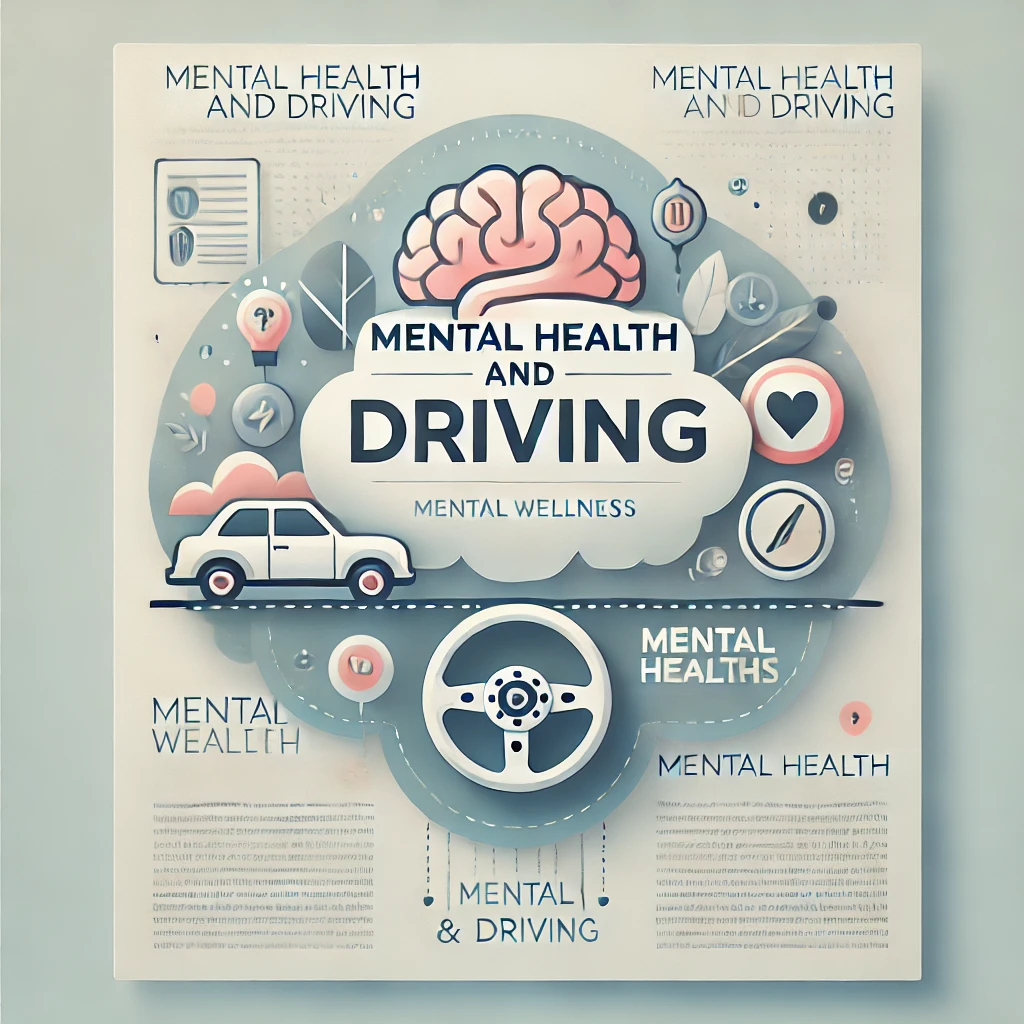We always concentrate on our physical driving skills, disregarding the value of our minds and their effect on driving performance. Mental conditions are known to have a clinical effect on your health. Driving is one of our most stressful tasks during our working day. It possibly needs one of the highest concentration levels. This section discusses the role of psychiatric wellbeing in driver fitness and measures to be taken to improve the safety of those who encounter psychiatric and road users.
Mental health can affect our driving:
Driving is a dynamic activity that requires a wide range of competencies including cognitive, sensory, and psychosocial abilities. Several studies were carried out to assess how mental health would influence driving skills:
- Persons with anxiety disorders may have misunderstandings about other road users’ actions or intentions.
- Hallucinated individuals are often too worried to be a professional driver.
- Impairing information processing, such as cognitive impairment, excessive attention, impaired focus, or active delusional thinking disorder, may impact driving capacity in a safe manner.
- Risk management, accompanied by observation, preparation, and decision and vehicles were the most frequent driving deficiency found during the simulated road evaluation.
- Perceptive disabilities affect the ability to see, hear, or perceive the driving environment correctly.
- The mood can lead to impulsiveness and violent drive, including suicidal ideation.
- Those with impaired mental health are as prone to addiction as anyone who drinks alcohol excessively.
- There were comparatively fewer deficits in vehicle physical checks and response speed.
- It was also noted that depressed patients had slower response times.
- In crazy mood conditions, we see poor judgment, indifference, and a sense of invulnerability.
- If more than trivial, memory issues can affect driving skills.
- In high traffic environments, acute anxiety symptoms or panic attacks can be severe.
- Impulsiveness and risk-taking increased.
- Conduct that is too hostile, irritable, or irritable.
- The mood can lead to impulsiveness and violent drivement, including suicidal ideation.
What are the barriers to Driver Fitness understanding mental health as an essential factor?
- Well-being is given less importance than protection.
- Instant incentives are carried for protection and health is a slow burn.
- It is often harder to find issues and often the effect of treatments will take a long time to see.
- Many people are reluctant to speak about mental wellbeing.
- Men, in particular, don’t want to talk about anyone, whether it’s their girlfriend or family, and, most importantly, do not know how to address what they feel.
- We need to be aware of the wealth of inexact knowledge existing in the world about mental illness.
- More research is required on the impact on fitness-to-drive of various conditions.
If anyone has these diseases, he can’t able to drive:
- Any other illness or physical defect that would possibly make them unable to drive and operate a motor vehicle of the class concerned in the best possible way without jeopardizing the public safety: given that deafness is not considered to be a defect by itself.
- if he or she is addicted to the use or overuse of any substance which has a narcotic effect.
- Any disorder that induces muscle inconsistency.
- Diabetes mellitus was uncontrolled.
- Deficient vision is defined by the accepted norm.
- Epilepsy is uncontrolled.
- Sudden assaults by impairment or asthma, crippling giddiness, or fainting.
- The anxiety may lead to unintentional hilarity near the state of paralysis-probably harmful if drivers would have to make split-second decisions to prevent an accident.
- Depression might make them uncomfortable about their safety and the safety of others.
- Stress is a big factor for a driver’s mental well-being along with exhaustion.
Conclusion:
The well-being of drivers is critical, not only their physical but also their mental well-being. We all share and ought to share the roads with love, as far as possible, in appreciation that several encounter more difficulties than we do! It’s not about their own wellbeing and the reduction of costs of road accidents.

